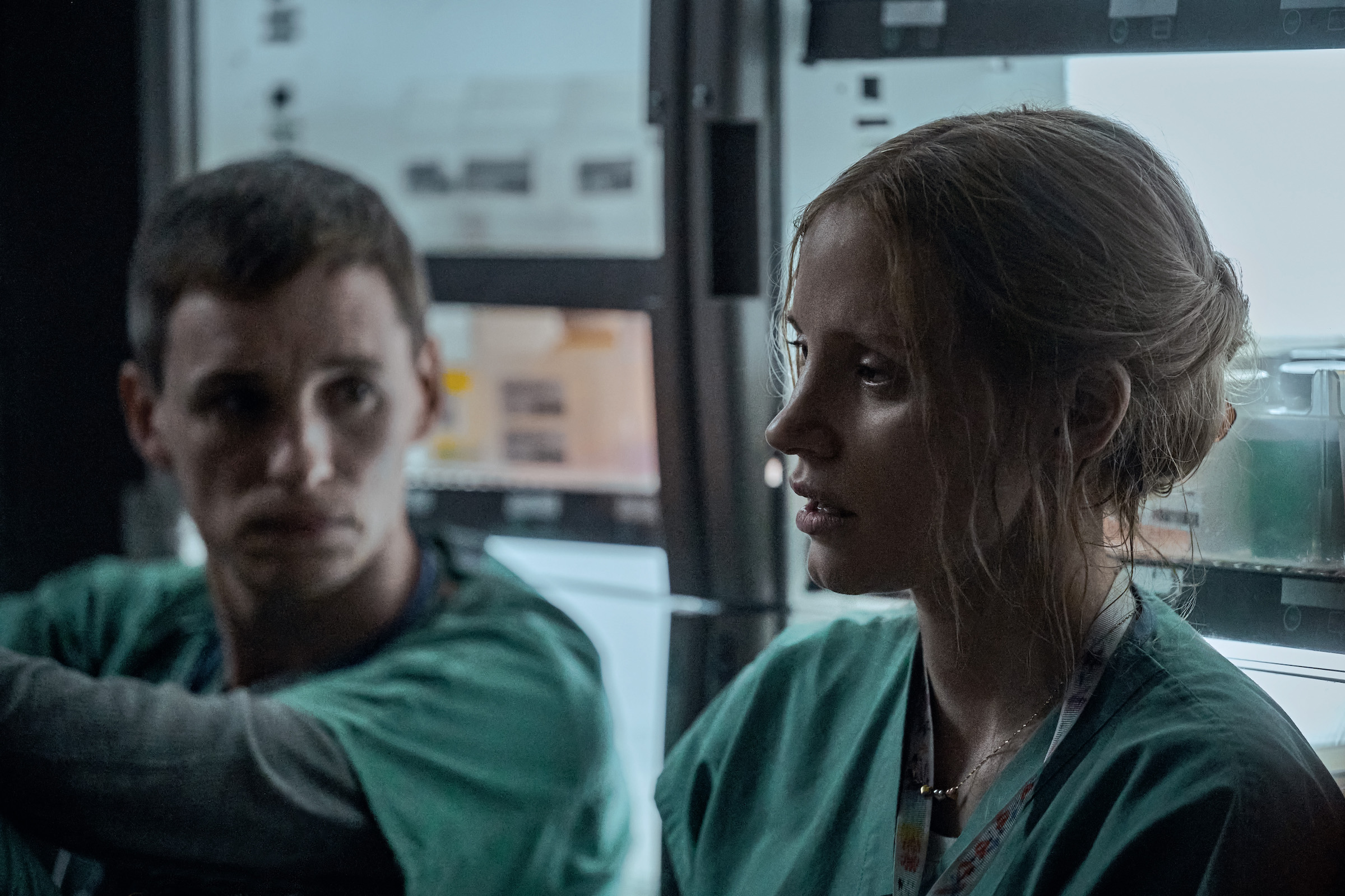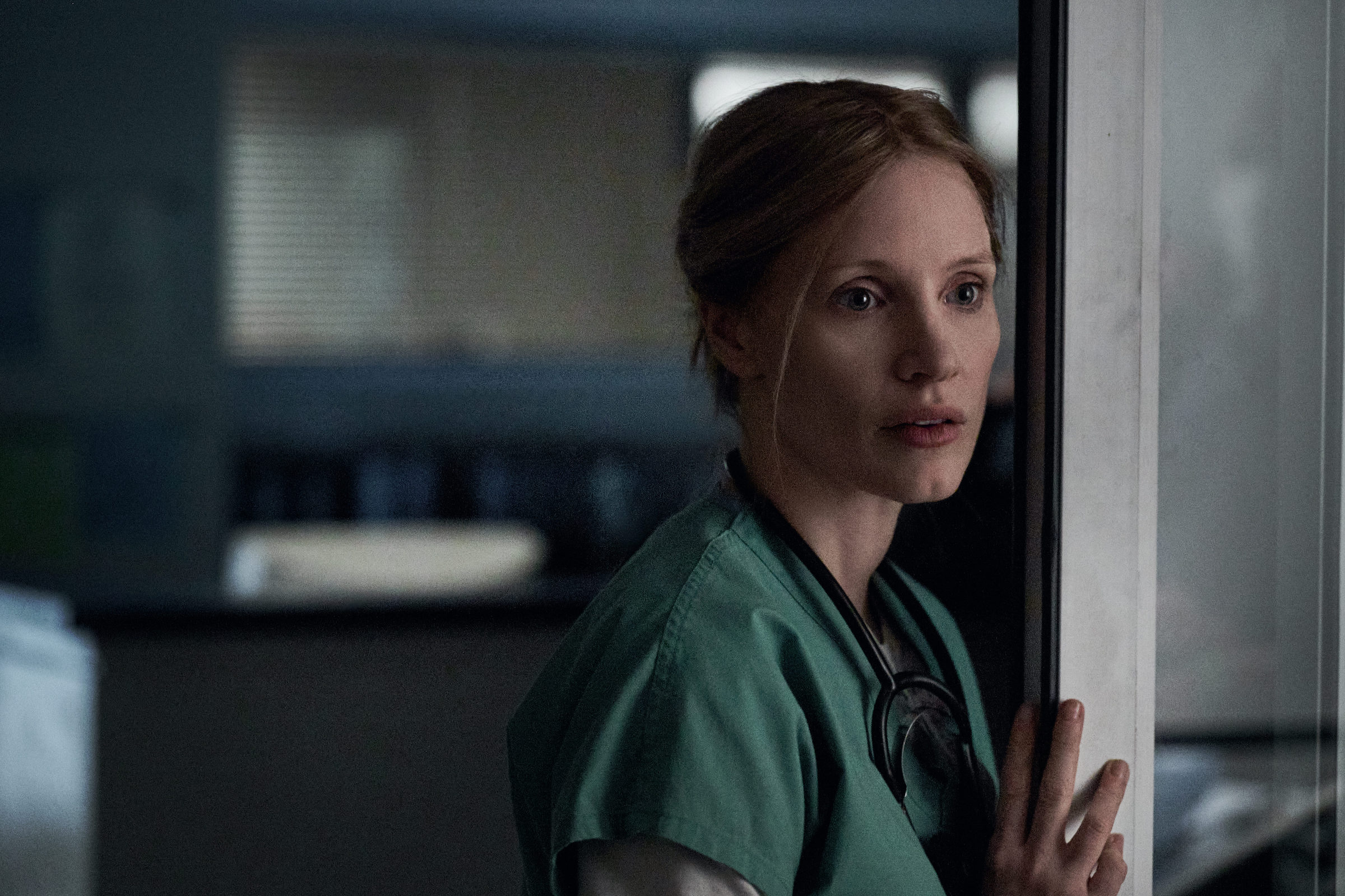
Few places inspire more anxiety and vulnerability than hospitals, which makes the idea of a serial killer prowling the corridors especially unnerving—especially if the killer is a nurse. That’s the dramatic gamble of The Good Nurse, based on the story of Charles Cullen, currently serving multiple life sentences for murdering at least 29 patients across New Jersey and Pennsylvania between 1988 and 2003. Eddie Redmayne plays Cullen: in the first scene, he stands back and watches blankly as doctors tend to a patient who’s flatlined. Bad eggs don’t come much worse than this.
Later, having jumped to another hospital, he befriends fellow nurse Amy Loughren (Jessica Chastain), a single mom with two small kids and a heart condition that will require surgery, if it doesn’t kill her first. And having started her job only recently, she’s still a few months away from getting health insurance. She finds an ally in Charles, who radiates false kindness as only a truly insidious serial killer can.

Directed by Tobias Lindholm (whose credits include the 2012 pirate drama A Highjacking) and adapted by Krysty Wilson-Cairns from Charles Graeber’s book, The Good Nurse is tense, all right, sometimes to the reaches of unpleasantness, but mostly just to the point of boredom. Though it works hard to make us believe it’s really a social statement about hospitals’ lack of scruples—pay close attention to that hospital risk manager, played by Kim Dickens, who takes great pains to cover up deaths that happen on her watch—its garden-variety true-crime roots are painfully visible. People enjoy true crime for lots of reasons, but we could all stand to be a little more honest about the reality that these stories stem from real-life human suffering. The Good Nurse has a classy, polished luster—it virtually sighs “prestige,” without being so gauche as to spell it out. But in the end, it’s still just a serial-killer procedural, played out for our delectation.
Read more: The 16 Best True Crime Books of All Time
Redmayne is fine as bad nurse Charles, until he starts twitching and overemoting in the finale—the kind of overkill that’s more a director’s fault than an actor’s. Chastain is the movie’s saving grace: she’s not playing a pushover but a woman who desperately needs kindness and accepts it when it’s offered, even if it’s fraudulent. She sees Charles as a human being, which means she feels a sharp sense of loss when she discovers the truth about him. Chastain renders every emotional shift in muted tones. She’s the movie’s pulse, a vibration that registers even amid the bedpan clatter of its dressed-up tawdriness.
More Must-Reads from TIME
- Cybersecurity Experts Are Sounding the Alarm on DOGE
- Meet the 2025 Women of the Year
- The Harsh Truth About Disability Inclusion
- Why Do More Young Adults Have Cancer?
- Colman Domingo Leads With Radical Love
- How to Get Better at Doing Things Alone
- Michelle Zauner Stares Down the Darkness
Contact us at letters@time.com